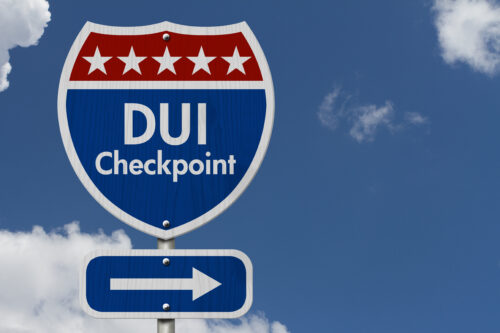
Everyone knows that driving in New York can be particularly stressful, especially since police officers closely monitor traffic violations. Law enforcement is often strict when it comes to those they catch operating their vehicle while under the influence (DUI) of drugs or alcohol. DUI carries lifelong consequences. Therefore, it’s crucial to understand your rights. In New York, many drivers wonder whether sobriety checkpoints are legal. Please continue reading to learn whether law enforcement has the right to set up DUI checkpoints and what you can legally be compelled to do in this situation. In addition, contact our determined Nassau County Criminal Defense Attorneys, who can help you construct a robust legal defense against your charges.
What are sobriety checkpoints?
A sobriety checkpoint, also called a DUI checkpoint, is a location that is set up by law enforcement to detect drivers impaired by drugs or alcohol. Police officers have the authority to request a field sobriety test after questioning if the motorist’s behavior suggests they’re intoxicated. During this assessment, police officers must adhere to specific protocols and laws not to infringe on a driver’s constitutional rights.
In New York, it’s legal for police officers to set up sobriety checkpoints to check drivers to determine if they are driving in a state of impairment. However, these checkpoints must be conducted fairly. DUI checkpoints must conform to the following legal limitations:
- Police officers must devise a specific sequence or pattern to stop vehicles (like stopping every third card to provide an impartial basis).
- It must have safety precautions, including adequate lighting and warning of the checkpoint’s existence, so drivers can safely stop and drive through it.
- They can only stop drivers for a reasonable amount of time.
Do I have legal rights at DUI checkpoints in New York?
While any encounter with the police can be frightening, it’s crucial to remain calm. It’s critical to understand your rights to ensure they are not violated at any point during a DUI checkpoint. As mentioned above, police officers are constrained in their ability to stop vehicles for these checks and must follow stringent procedural protocols. Police officers are not permitted to search a person or vehicle without consent from the driver or probable cause.
In addition, you can avoid a DUI checkpoint by turning as long as you do not break any traffic laws to do so. If you make an illegal U-turn, the police will stop you. It’s beneficial to exercise your Fifth Amendment right to remain silent to protect yourself against self-incrimination. However, you must still provide the officer with your license and registration.
If a police officer has unreasonably stopped you during a sobriety checkpoint, please don’t hesitate to contact a determined attorney from the legal team at Grunwald & Seman, P.C., who can defend your rights and interests.
